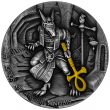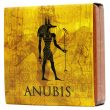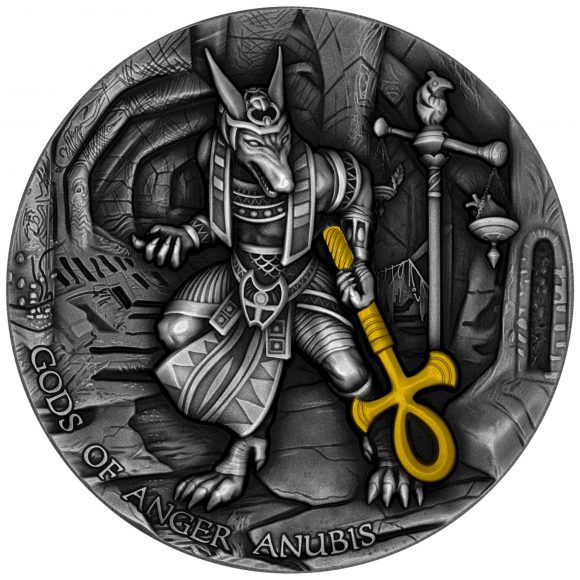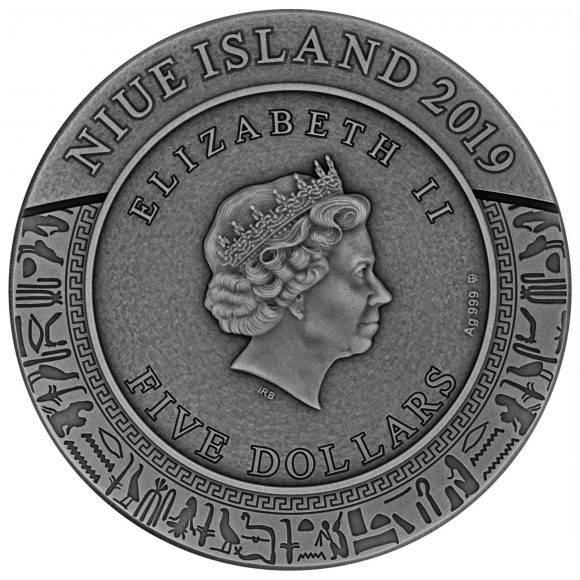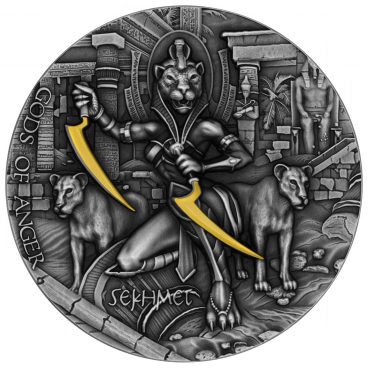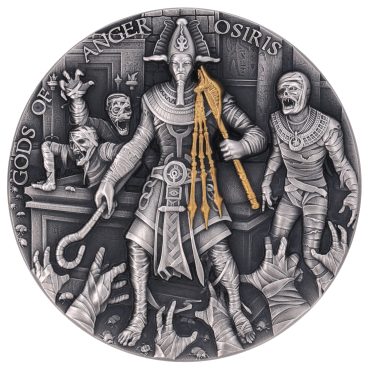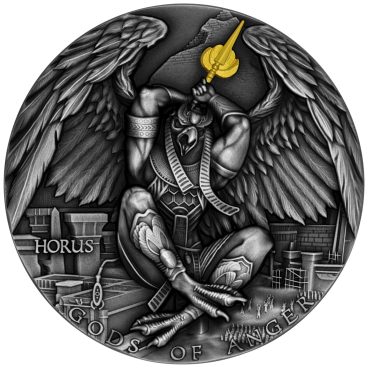Anubis is the Egyptian god of mummification and the afterlife, as well as the patron god of lost souls and the homeless. He is one of the oldest gods of Egypt. Anubis is the first issue in the Gods of Anger series.
Anubis
| Gods of Anger | |
| Year of issue: | 2019 |
| Issuer country: | Niue |
| Face Value: | Five Dollars |
| Metal: | Silver |
| Purity: | AG.999 |
| Weight: | 2 oz |
| Dimensions: | 45 mm |
| Relief: | High relief |
| Finish: | Antiqued |
| Additional: | Gold plated |
| Mintage: | 555 pieces |
Description
Anubis is depicted as a black canine animal, a jackal-dog hybrid with pointed ears, or as a muscular man with the head of a jackal. The colour black was chosen for its symbolism, not because Egyptian dogs or jackals were black. Black symbolised both the decomposition of the body and the fertile soil of the Nile Valley, which represented regeneration and life. Therefore, this powerful black dog was the protector of the dead and ensured that they received their due in burial as well as accompanying them in the afterlife to help with resurrection.
Prior to the rise of Osiris during the Middle Kingdom (2040-1782 BC), Anubis was known as 'the First of the Westerners’, meaning that he was the king of the dead, as 'Westerners’ was the Egyptian term for the souls of the departed in the afterlife, which lay to the west, in the direction of the sunset. In this role, he was associated with eternal justice and retained this association thereafter, even after he was replaced by Osiris, who was given the honorary title of „First of the Westerners”.
The name „Anubis” is the Greek form of the Egyptian Anpu (or Inpu), which meant „to rot”, implying his early association with death. He had many epithets apart from „First of the Westerners”: „Lord of the Sacred Land”, referring to the desert area where necropolises were located; „He who stands on the sacred mountain”, referring to the cliffs around one necropolis or another where wild dogs and jackals congregated; „Ruler of the nine bows”, referring to the phrase traditionally used for the enemies of Egypt, who were depicted as nine captives bowing before the king; „The dog who swallows millions of dollars”, referring to the phrase „the dog who swallows millions of dollars”; „The dog who swallows millions”, a simple reference to his role as god of the dead; „Lord of secrets”, as he knew what came after death; „He who stands at the place of embalming”, indicating his role in the mummification process; and „The first of the divine booth”, referring to his presence in the embalming booth and the burial chamber.
Anubis was a central deity in all aspects of people’s mortal experience in his role as protector, and even accompanied the soul after death as a just judge and guide. Expert Geraldine Pinch comments on this, saying that „Anubis helped judge the dead, and he and his army of messengers were charged with punishing those who desecrated the tombs or offended the gods. He was especially concerned with controlling the impulses of those who wished to sow discord or allied themselves with chaos.






Other products of Gods of Anger



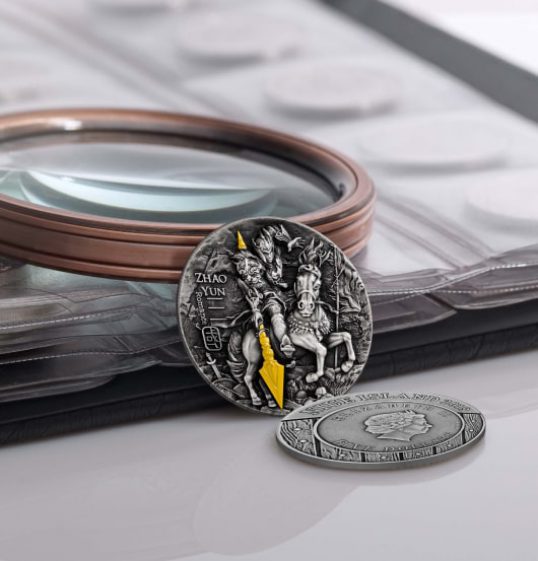
Twoje pytanie zostało pomyślnie wysłane. W niedalekiej przyszłości otrzymasz odpowiedź.

Sprawdź swój e-mail, aby otrzymać wiadomość potwierdzającą.
